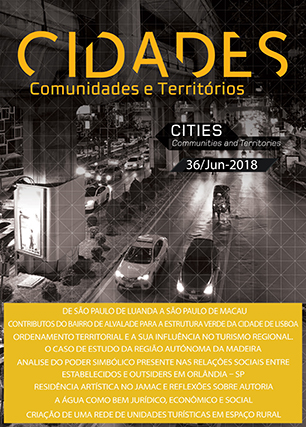Territorial Planning and its Influence on Regional Tourism. The Case Study of the Autonomous Region of Madeira (RAM)
Keywords:
Sustainable growth, Regional Planning, Territorial Planning, Urban Planning, Tourism, Socio-economicsAbstract
Nowadays a sustainable development and growth are one of the major concerning’s and goals of regional territories. In fact, this typology of growth is no longer only a desire but an urgent necessity, not only to increase the life standards of the populations but also to guarantee a future for the next generations.
Taking into account this typology of growth, and mainly in regions socioeconomic dependents on the tourism, studies that allow analysing spatial and urban planning processes and their influence over this activity are seen as critical for a sustainable development of such territories.
Through exploratory methods and tools – i.e. case study research method, territorial impact assessment, or public perceptions surveys; has been carried out a deep study regarding the impacts that public spatial planning policies over the tourism on the Madeira Autonomous Region (RAM).
Through the research, it is possible to verify the relationship between spatial planning policies and their impact on regional tourism, as well as the unsustainable growth of the region.
Downloads
Published
Issue
Section
License
CIDADES, Comunidades e Territórios by DINÂMIA'CET-Iscte is licensed under a CC-BY licence.






